.

Head of a Greyhound, right profile: Antonio Puccio Pisano (Pisanello) (c. 1395-c.1455), 15th c. (Musée du Louvre, Paris)
During the winter of 1940 I had sought refuge in a deserted house, situated at the end of one of the most beautiful and most deserted streets in the exquisitely beautiful, deserted city of Pisa. I had done so in order to escape from the war and from men, and to cure myself of that loathsome malady to which war exposes the human heart.
Panoramic view of the River Arno from Ponte di Mezzo, Pisa, Italy: photo by Lucarelli, 2008
With me was Febo, my dog Febo, whom I had picked up, dying of hunger, on the beach at Marina Corte, on the island of Lipari. I had tended him, reared him, brought him up in my lonely house on Lipari, and he had been my sole companion during my years of exile on that sad island, which is so dear to my heart.

Vulcano and Lipari, Aeolian islands, at sunset; seaview from Milazzo: photo by Carmen Privitera, 2009
I have never loved a woman, a brother, a friend, so much as I loved Febo. There was an affinity between us. It was in his honor that I wrote the tender pages of Un cane come me. He was a noble creature, the noblest I have ever come across in my life. He belonged to that breed of greyhounds -- a rare and delicate breed today -- which came long ago from the shores of Asia with the first Ionic immigrants, and which are known to the shepherds of Lipari as cerneghi.
The greyhounds of the Comte de Choiseul: Gustave Courbet, 1866 (St. Louis Art Museum)
He never strayed so much as a yard from my side. He followed me like a dog. He followed me, I say, like a dog. There was something wonderful about his presence in my wretched house on Lipari, a house lashed without respite by the wind and the sea.
Pumice mine on the island of Lipari, west of the town of Acquacalda: photo by Herandar, 2005 XX
At night the darkness of my bare room was lit by the bright warmth of his moon-eyes. His eyes were pale blue, the color of the sea when the moon sets. I was conscious of his presence, as one is conscious of the presence of a shadow, of one's own shadow.
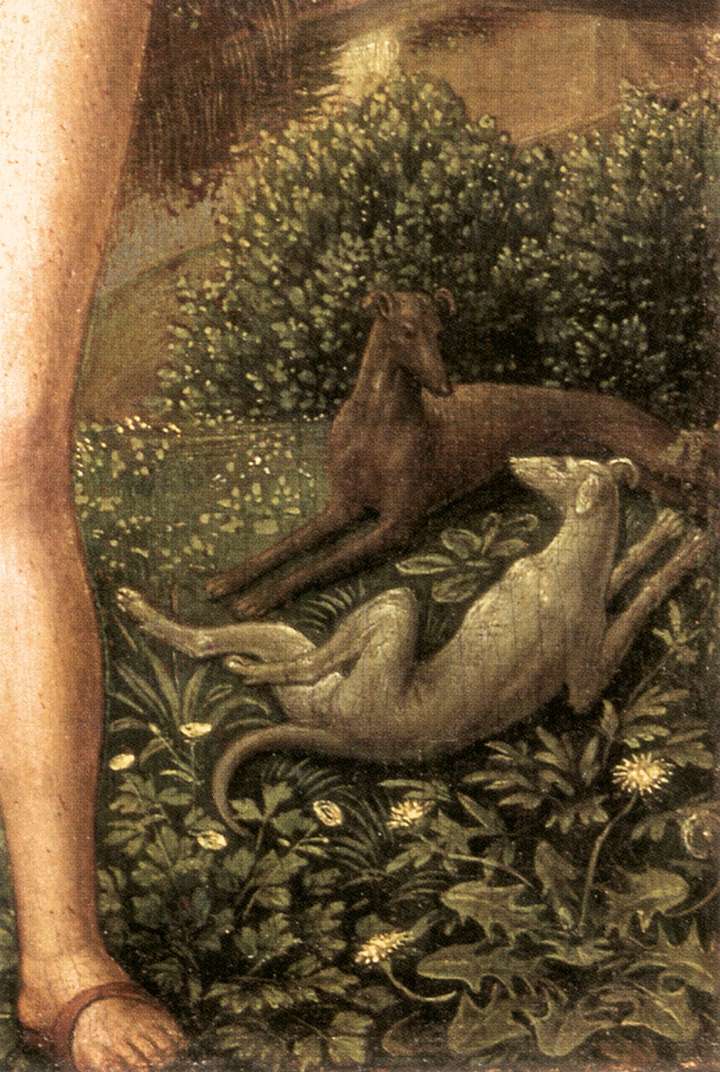
Two greyhounds (detail), front panel, Earthly Vanity and Divine Salvation (triptych): Hans Memling, c. 1485 (Musée des Beaux-Arts, Strasbourg)
He was, as it were, the mirror of my soul. His mere presence helped me to acquire that contempt for mankind on which the serenity and wisdom of a human being primarily depend. I felt that he resembled me, that he was in truth the very image of my conscience, of my secret life -- a portrait of myself, of all that is deepest, most intimate and most characteristic in me. I felt that he was my subconscious and, so to say, my ghost.

Sigismondo Pandolfo Malatesta, with two greyhounds, before St. Sigismond: Piero della Francesca, 1451 (Tempio Malatestiana, Rimini)
From him, far more than from men, with their culture and their vanity, I learned that virtue is its own reward, that it is an end in itself, and that it does not even aspire to save the world (not even that!), but only to invent every new justification for its disinterestedness and its liberty of action.

St. Eustace, with greyhounds and stag (detail): Albrecht Dürer, c. 1501 (Fogg Art Museum, Cambridge)
The relationship of a man and a dog is always a relationship of two free spirits, of two forms of dignity, of two types of virtue each of which is its own reward. It is the most disinterested and the most romantic of relationships, one of those relationships which death illuminates with its own radiance -- a radiance tinged with the color of the pale moon that hangs above the sea at dawn, when the sky is green.
View of Alicudi and Filicudi Islands from Lipari, Aeolian Archipelago: photo by Thorsten Bachner, 2003
I saw reproduced in him my most mysterious impulses, my doubts, my fears, my hopes. The dignity of his attitude toward mankind was mine, the courage and pride of his attitude to life were mine, his contempt for the fickle passions of men was mine.
But he was more sensitive than I to the obscure portents of nature and to the invisible presence of death, which ever lurks about us, silent and suspicious. He sensed the approach of the sad spirits that haunt our dreams as they come from afar through the night air, like dead insects that are borne on the wind, none knows whence.

Studies of a Greyhound: Federico Zuccaro, 1563-1564 (Musées Royaux des Beaux Arts, Brussels)
And on some nights, as he lay curled up at my feet in my bare room on Lipari, he followed with his eyes an obscure phantasm as it hovered around me, advancing and receding, and lingering long hours watching me through the windowpane. Every so often, if the mysterious presence came so close that it brushed my forehead, Febo would snarl menacingly, the hair on his back would bristle; and I would hear a mournful cry receding into the night, and gradually dying away.

Filicudi ("Scolgio della Fortuna") and Alicudi ("Faraglione La Canna"), Aeolian Islands, Italy, North of Sicily: photo by Wolfgang H. Wödere, 2006
He was the dearest of brothers to me, a true brother, one who betrays not, nor humiliates. He was a loving, a helping, an understanding, a forgiving brother. Only the man who has suffered long years of exile on a desert island, and who, on his return to the haunts of men, finds himself shunned and avoided as if he were a leper by all those who one day, when the tyrant is dead, will pose as the heroes of freedom -- only he knows what a dog can mean to a human being.
Often Febo would gaze at me with a sad, noble expression of reproach in his loving eyes. At such times my sadness made me feel strangely ashamed, almost remorseful, and I was conscious as I faced him of a kind of heightened moral susceptibility. I felt that at those moments Febo despised me. True, he grieved for me, he was tender and loving; yet his eyes certainly held a suggestion of pity and, simultaneously, of contempt. He was not only my brother, but my judge. He was the guardian of my dignity, and at the same time, to use the expression of the old Greeks, he was my δορυφσρημα.

Standing Greyhound, right profile: Antonio Puccio Pisano (Pisanello) (c. 1395-c.1455), 15th c. (Musée du Louvre, Paris)
He was a sad dog, with grave eyes. Every evening we used to spend long hours on the high windswept threshold of my house, looking at the sea. Ah! the Grecian sea of Sicily, ah! the red crags of Scylla, yonder, facing Charybdis, and the snow-capped peak of Aspromonte, and the white shoulder of Etna, the Olympus of Sicily!
Truly, as Theocritus sings, life offers no more beautiful experience than to contemplate the Sicilian sea from a vantage point on the shore. We used to see the shepherds' fires flaring up on the mountain, and the boats sailing forth into the deep to meet the moon; we used to hear the mournful wail of the sea shells, through which the fishermen call to one another over the water, receding into the silvery moonlit haze.
Shadow of Stromboli, Aeolian archipelago, stretching 60 km. across South-Eastern Tyrrhenian Sea: photo by Bruno G. Caprile, 1997
We used to see the moon rising over the crags of Scylla, and Stromboli, the high, inaccessible volcano that stands in the middle of the sea, blazing like a solitary pyre within the deep blue forest of the night. We used to look at the sea, inhaling the pungent salt air, and the strong, intoxicating perfume of the olive groves, and the smell of goats' milk and of juniper branches burning in the hearths, and that warm, heavy scent of women which pervades the Sicilian night when the first stars climb wanly above the horizon.
Then one day I was taken with handcuffs on my wrists from Lipari to another island, and from there, after long months, to Tuscany. Febo followed me at a distance, hiding among the casks of anchovies and the coils of rope on the deck of the Santa Marina, the little steamer which crosses every so often from Lipari to Naples, and among the hampers of fish and tomatoes on the motorboat that plies between Naples, Ischia and Ponza.
With the courage that is peculiar to cowards -- it is the only positive claim that slaves have to share the privileges of the free -- the people stopped to look at me with reproving, contemptuous expressions, hurling insults at me through clenched teeth. Only the lepers who lay in the sun on the beaches in Naples harbor smiled at me surreptitiously, spitting on the ground between the shoes of the carabinieri. I looked now and again to see if Febo was following me, and I saw him walking with his tail between his legs, hugging the walls, through the streets of Naples, from the Immacolatella to the Molo Beverello, a wonderfully sad look in his bright eyes.
View of the Gulf of Naples from Castel Sant'Elmo: photo by Oliver-Bonjoch, 2010
When, a few months later, I was transferred to Lucca, I was shut up in the prison, where I remained for many weeks. And when I came out, escorted by my guards, to my new place of banishment, Febo was waiting for me outside the door to the jail. He was thin and mud-stained, and there was a horribly gentle expression in his eyes, which shone brilliantly.

Greyhound: Artus Quellinus (1609-1668), 1657, wood, 36 x 70.5 cm (Rijksmuseum, Amsterdam)
Two more years my exile lasted, and for two years we lived in a little house at the heart of a wood. One room was occupied by Febo and myself, the other by the carabinieri who were my warders. At last I regained my freedom, and to me it was like going from a room without windows into a narrow room without walls. We went to live in Rome, and Febo was sad -- he seemed to be humiliated by the spectacle of my freedom. He knew that freedom is alien to humanity, that men cannot and perhaps do now know how to be free, and that in Italy and in Europe freedom is discredited no less than slavery.
Throughout our stay in Pisa we used to remain indoors nearly all day. Not until noon or thereabouts did we go out for our walk by the river, the fair river of Pisa, the silver Arno, strolling along the beautiful Lungarni, so light and cold. Toward evening we would go and sit on the parapet overlooking the Arno (that narrow stone parapet along which Lord Byron, in the days in which he was an exile in Pisa, used to gallop every morning on his beautiful alezan, amid the terrified shouts of the peaceful citizens). We used to watch the river as it flowed along, carrying with it in its bright career leaves blighted by the frosts of winter and mirroring the silver clouds that drift across the immemorial sky of Pisa.
Febo used to spend long hours curled up at my feet, and every so often he would get up, walk over to the door and turn and look at me. I would go and open the door for him, and he would go out, coming back after an hour or two, breathless, his coat smoothed by the wind, his eyes bright from the cold winter sunshine. At night he used to lift his head and listen to the voice of the river, to the voice of the rain beating down on the river; and sometimes I would wake up, and feel his warm eyes resting gently upon me, feel his vital, affectionate presence there in the dark room, and his sadness, his desolate foreboding of death.
Head of a Greyhound, left profile: Antonio Puccio Pisano (Pisanello) (c. 1395-c.1455), 15th c. (Musée du Louvre, Paris)
One day he went out and never came back. I waited for him until evening, and when night fell rushed through the streets, calling him by name...

Greyhound Bus Station, 216 South Court Street, Montgomery, Alabama: photo by Carol M. Highsmith, 2010 (Library of Congress)
This post dedicated to Walter Murch
Curzio Malaparte: La Pelle (The Skin) (excerpt), 1949 (translated by David Moore, 1952)
Curzio Malaparte: La Pelle (The Skin) (excerpt), 1949 (translated by David Moore, 1952)

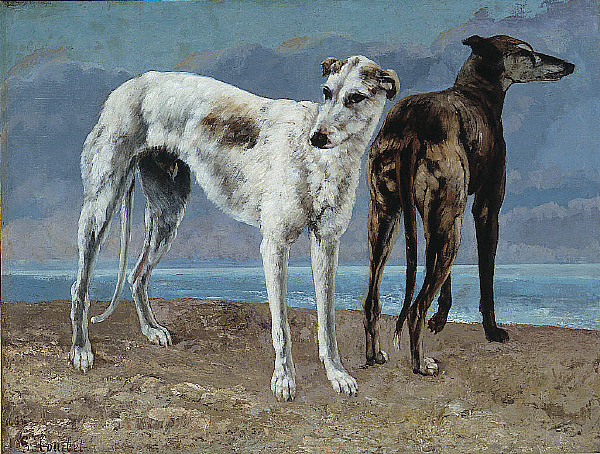
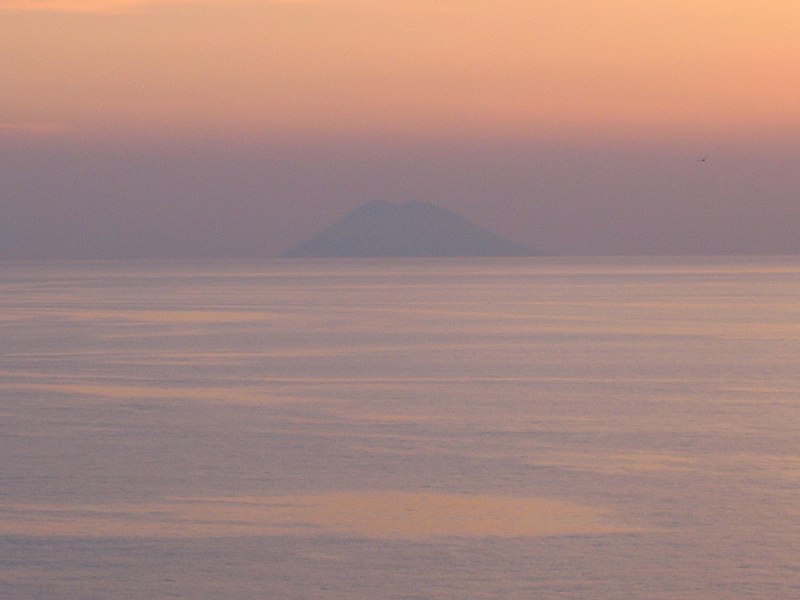
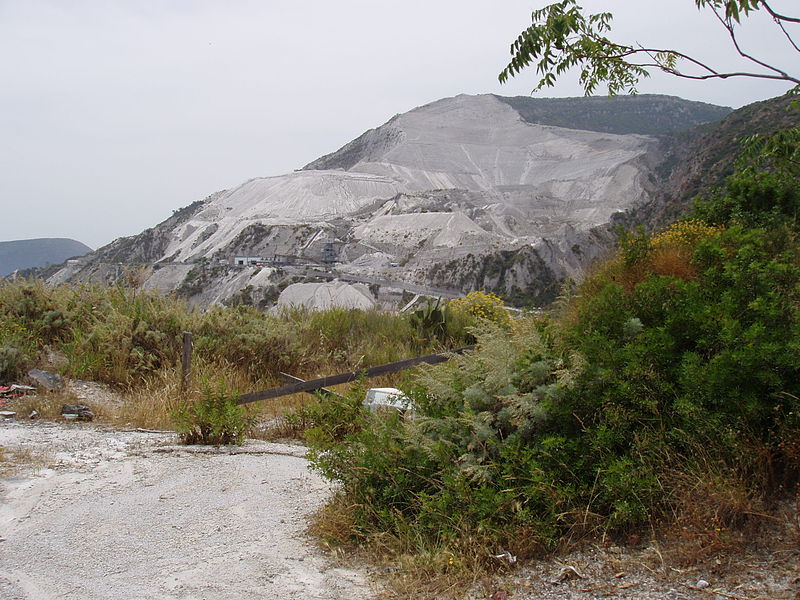





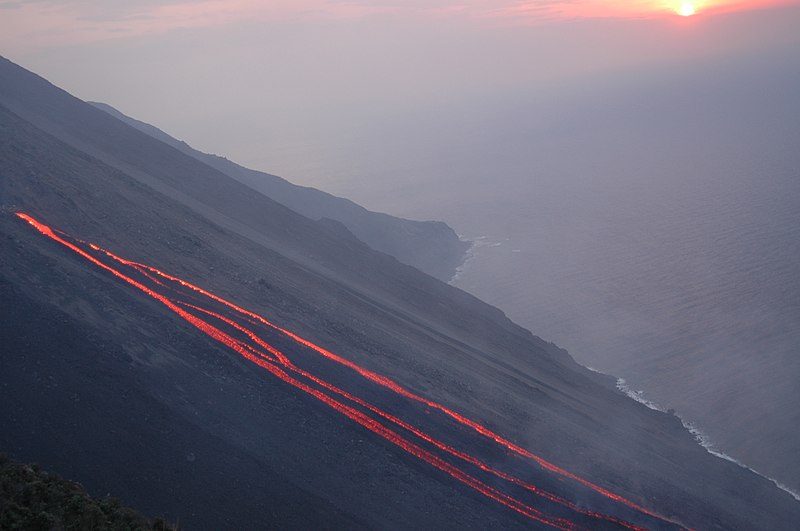
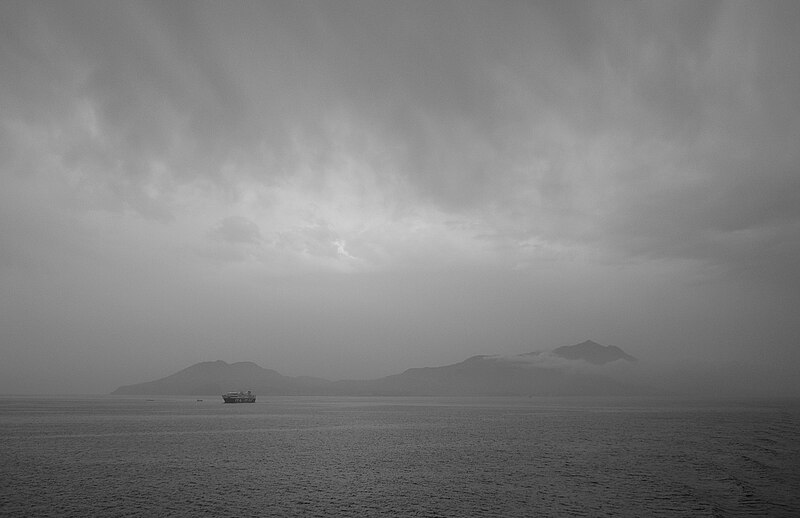

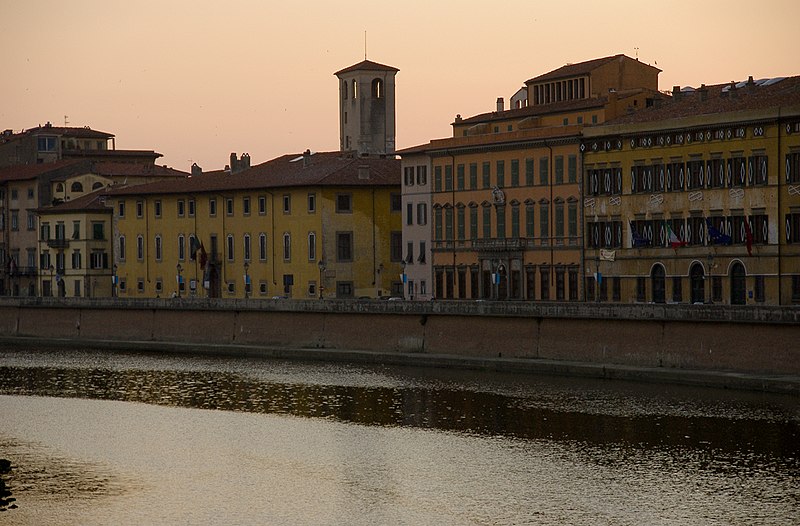





14 comments:
"...to use the expression of the old Greeks, he was my δορυφσρημα."
The term Malaparte uses is Homeric for "bodyguard".
(The presence of Odysseus and his dog Argos in these waters is local knowledge for Malaparte.)
amazing post.
it makes me think of sky blue greyhounds the size of houses
with port holes through which may be seen endless films of island vistas.
if only words themselves
felt like warm squirmy puppies
in our hands, or like running
one's hand across an endless changing musculature from a body
unconscious of its own size or identity or construction
wv: antsmsg
Lanny,
I feel you.
That's why they were once called "sighthounds," I reckon.
If-only word sensoriums, alertnesses...
(antsmg==mega-ants crawling over nonidentical constructions?)
Tom,
This is beautiful, an unfolding saga, Curzio Malaparte and his Caneluna transcribed in words and pictures -- gripping (and when I got to the Greyhound Bus Station and then Walter Murch --- (!), heart stopping. . . .
Thanks very much, Steve, especially for mentioning the Greyhound station. I took a chance on that one. (The post constructed under strange pseudo-wartime conditions, plaster raining down overhead...)
Yes, Walter Murch your neighbor I do believe, has done some fine and serious work on translating Malaparte. That inspired and encouraged me to hang in or on with this one, amid chaos.
This, all of it, has been the best part of my day so far. I've never read anything like it (but I do know dogs). The images you've chosen (including the Greyhound station) all work beautifully: the Pisanellos, the Durer and, for me this time, especially the Courbet, not to mention every exquisite photograph. I'm sorry about your ongoing construction. You don't need me to tell you this, but eventually it will be finished. "His mere presence helped me to acquire that contempt for mankind on which the serenity and wisdom of a human being primarily depend." I wish I could say that I didn't know what Malaparte means, but I think I do.
Curtis, yes, I think you do.
As you can imagine, doing up a big post like this one, in the best of times, would represent a great folly of self imposed labour... but in times like these, pure insanity. One needs self created incentives. Two that helped a lot here were: knowing that you know and love dogs, and knowing that you know and love great art. Pleasing one's friends, even a little, is a very great pleasure. So, thanks. And that Greyhound image... I thought about it and thought about it, and finally realized that the historical tension in the image made it a perfect fit for Malaparte.
I hope you find it to be warm, rather than cold comfort to hear that I think the possible folly/insanity issue is both recognized and deeply appreciated by all concerned on this page. As someone who has tried to essay for fun far less ambitious work on the more than occasionally recalcitrant Blogger software (and that doesn't include the art portion of the exercise, which is the main reason to undertake the exercise unless you're really dying to have my extraordinary gazpacho recipe), I can't believe what you're able to pull off. It was a funny day here in the human zoo. A chair and a whip might have been helpful, but at least Caroline and I had each other, our still accurate memories of past events, detailed notes, and (possibly overly) sharp tongues to deal with our sort-of guests from Malefactor, Connecticut. (It's near Stamford.) Malaparte's difficulties aside, you made it very good to visit these islands. I wish I could get on a plane tomorrow.
Curtis,
Thanks very much. Only somebody who has been humbled by the neo-gothic peculiarities and unpredictabilities of the inner sanctum of the ark of the covenant of the boiler room of the Blogger temple would understand.
This post took about sixty hours to assemble (during the bombardment) and another seven or so to post. As you've doubtless learned, Patience is a must. Also the willingness, if one does not at first succeed with the rational approach, to try, try again with the desperate, instinctive hunch-plays, one after another.
And then there is the deeply terrifying world of HTML, of which let us not speak, for fear of disturbing the restless slumber of the Blogger gremlins.
(The post originally was to have a second half, in which the appalling fate of Febo is played out, but one was restrained by the wiser half of the household from letting that part of the story see the light; first, because it is so very terrible; and second, because it is, unlike the part of the story presented here, purely fictional. Febo, it seems, did exist, and was very much an actual dog; but as far as I have been able to maintain, his ending came more or less naturally, without the intervention of the vivisectionists.)
As to your guests, by the way, I have done a bit of research and learned that the problem may be even more serious than you have already gathered; it seems there is apparently a whole clan of these noisome beings out there. Perhaps if we murmur of them in hushed tones, we may remain safe from their further depredations. Not forgetting that just around the next corner there may well lurk a Malefactor.
Tom,
Yes, "sighthounds"-- I didn't see this in your comment yesterday but here it jumped out at me. Along with Curtis's "I do know dogs" -- helping me to think I do too, though don't now have one, and last night reached down to say goodbye to Shaka, Leslie and Tom's small very clean white long haired samoyed (?) and suddenly thinking of your greyhounds (Pisanello and Courbet and Memling and Piero and Durer -- so beautifully pictured here), and putting my hand on her shoulder too hard (maybe) she "yiped" at me (who had overstepped his bound), then looked up at me the way dogs will do, waiting. We once kept a friend's borzoi for a few weeks, another "sight hound," and had two vizslas (father and son) for their whole long lives --- so yes, I too do know dogs -- a pleasure to see this one again. . . .
10.19
light coming into sky against invisible
ridge, golden-crowned sparrow’s oh dear
in foreground, sound of wave in channel
an earlier drawing, observed
that each of two “was”
what the lark “sees,” how it
sees, is here “seeing”
silver of sunlight reflected in channel
shadowed green slope of ridge across it
great Malaparte posts...a three
dimensional culture spread and
a time machine
Walter Murch: father or son?
Steve,
Oh, dear, the gaze of a dog, the song of a golden-crowned sparrow, the presences and absences...
(Small-world segue back to your paradisal neighborhood...)
___
Elmo, many thanks.
Since you ask, it is Walter Murch, Sr.
This may be of interest:
Walter Murch on Malaparte
As it happens, Walter, Jr. was once a classmate of our daughter, in a prior life.
And while we're on the family connections... Beatrice Murch (daughter of Walter, Sr. and sister of Walter, Jr.), coincidentally, has been good enough to share her great photography work with us on several occasions. You may recall her images on these posts, among others:
Flow
Flutter
Parade
In Bolinas (1970-1971)
I am not one for looooooooooooooooooooong reads(I have such a short attention span, like a Butterfly, that flutters from flower to flower); I must confess. However, I read each word with care and endearment.I am loving these words and agree with each sentiment. Yes, there is no better friend than a dog.No one as loyal and forgiving.
*whispers* Although there is a gentleman by the name of Thomas who comes close!
It is soooo very good to hear from you, SarahA.
Sorry about the long read, do forgive... but it did occur to me that some flicker of a sixth sense might cause a certain tall, beautiful and very loyal white dog named Snowy to pick up this signal. What a pleasure to have (perhaps) been right for once.
Do take care, my dear. I hope you are well. At least we do seem to have survived somehow.
Your friend,
Thomas
Post a Comment